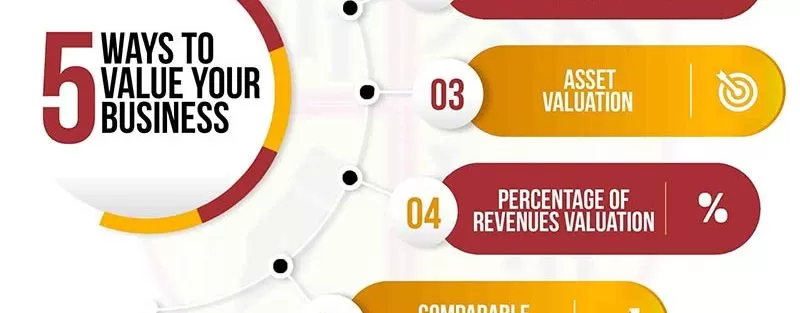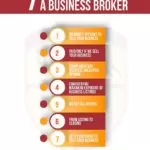Valuing a business can be more art than science. No law exists that requires you to use a specific formula to value your business. However, there are many ways to value a business. The difficulty is knowing which valuation method best fits what you are looking to achieve.
Ultimately, the best way to know the value of your business is what a buyer is willing to pay and the seller willing to accept. This is known as Fair Market Value.
However, let’s explore in “plain English” five (5) commonly used business valuation methods:
- Owner Benefit Valuation
At the end of the day, a buyer wants to know how much they will make after all business expenses are paid, i.e. the Owner Benefit.
Many small business owners pay themselves in different ways. For example: W-2 income, distribution, business pays for personal expenses, one-time non-recurring expenses etc.
When you add all these figures, it gives you a total which represents what the owner/seller is making/benefiting.
Once you determine this number you multiply it between 2 to 6 depending on the type of business, annual sales and profitability. The answer you get (Owner Benefit x 2.0) would be the purchase price/business valuation.
- EBITDA Valuation
This strange sounding acronym stands for Earnings (E) before Interest (I), Taxes (T), Depreciation (D) and Amortization (A).
EBITDA is used to analyze the performance of the company as you can compare it to industry standards.
Once you determine the EBITDA, you multiply it by a valuation multiple (varies among industries and revenue size) and this gives you the business valuation (i.e. business purchase price).
- Asset Valuation
Under this valuation method you identify all the tangible assets of the business (i.e. fixtures, furniture, equipment, inventory) and assign the fair market value of each asset.
The total asset value minus the business liabilities (i.e. debt or loans) equals the business valuation (i.e. business purchase price).
This method is often used when the business is liquidating or losing money.
- Percentage of Revenues Valuation
Best way to explain is by example. A restaurant’s annual gross revenues is $1,000,000.00. You than take 30% to 50% of the annual revenues. In this hypothetical, let’s take 30% of the annual gross revenues: $1,000,000.00 x .30% = $300,000.00.
Therefore, $300,000.00 would be the business valuation (i.e. business purchase price).
- Comparable Sales Valuation
Another example will help illustrate this business valuation approach:
A manufacturing business is looking to sell. The business broker or business intermediary researches similarly situated business types that have sold over the last 10-15 years.
Once you identify these closings, you begin to compare business metrics (i.e. revenues, net profits) between the businesses that sold and the business to be sold.
You will than identify the low, medium and high sales price, and depending on the Seller’s goal, you establish a business purchase price.
Although the five (5) business valuation methods identified differ, they all have one very important factor. This factor is having accurate financial data of the business. If you do not have accurate financial data, the business valuation is pointless.
No matter which valuation method you use, always have accurate business financial data.
Authored By:
Gil Sanchez, Esq.
Founder & CEO of Tempus Business Strategists, LLC
Tempus Business Strategists, LLC (“Tempus”) is a Florida Licensed Real Estate Brokerage (License #: CQ1051910). Tempus is a Member of the Business Brokers of Florida (“BBF”), International Business Brokers Association (“IBBA”) and Alliance of Merger & Acquisition Advisors (“AMAA”).
—
About Tempus
Tempus #1 goal is to represent Florida business owners in selling their business for as much and as quickly as possible. We sell businesses from all industries. Deal size ranges from $50,000.00 to $20,000,000.00.
We also assist buyers to acquire businesses, business consulting and valuation opinions.
We market our listings confidentially to people and companies in the U.S. and around the world.
All buyers are required to sign Confidentiality Agreements and provide their own personal financial statements.
Our business brokers and business intermediaries will assist in providing a business valuation opinion, guide buyers for financing and take a listing from listing to close.
No upfront cost to hire us. We are paid only if we sell your business.
Contact us now for a free phone or in person consultation. 844-509-5778.
Tempus Business Strategists, LLC (“Tempus”) is a Florida Licensed Real Estate Brokerage (License #: CQ1051910). Tempus is a Member of the Business Brokers of Florida (“BBF”), International Business Brokers Association (“IBBA”) and Alliance of Merger & Acquisition Advisors (“AMAA”).



